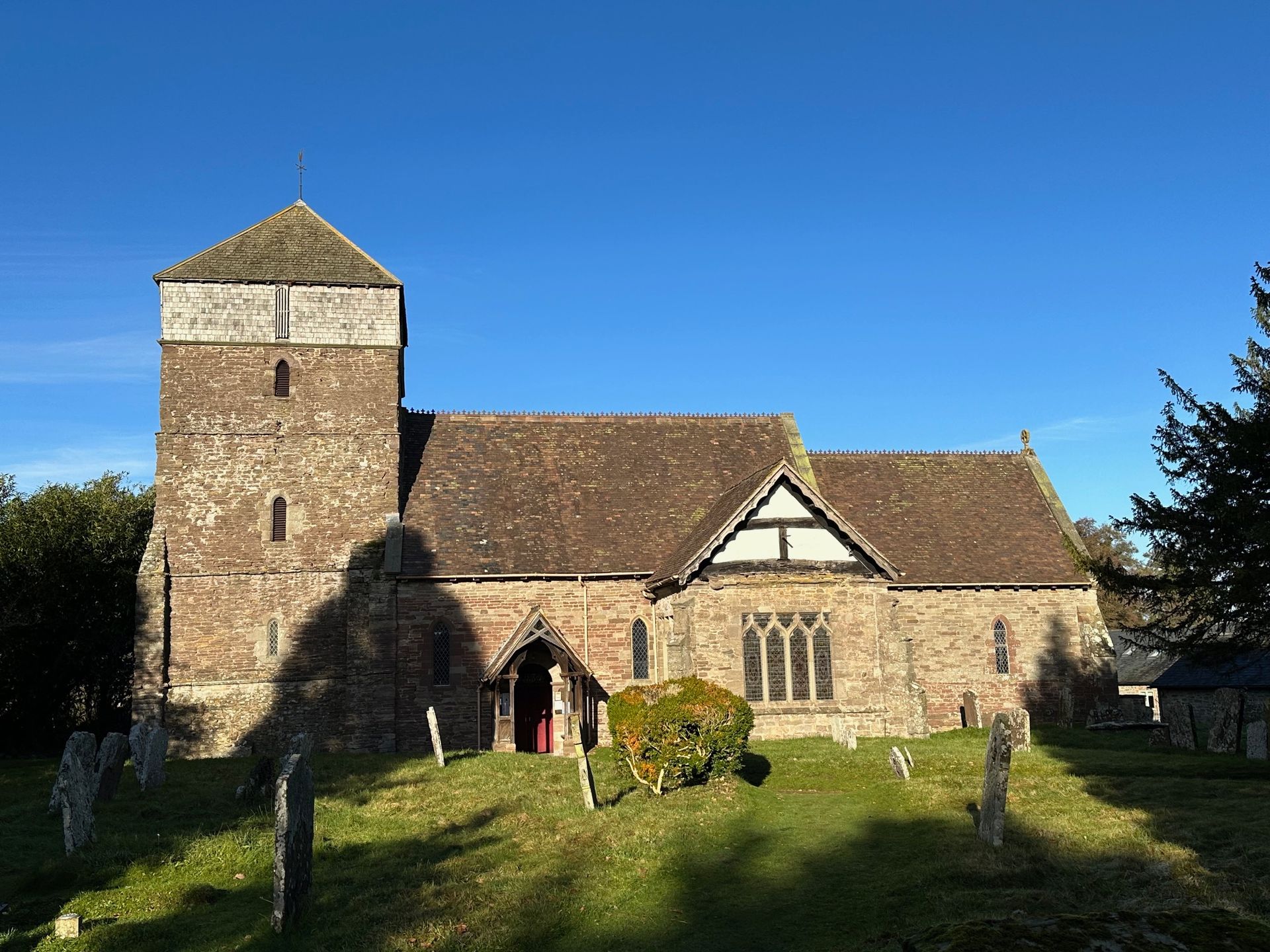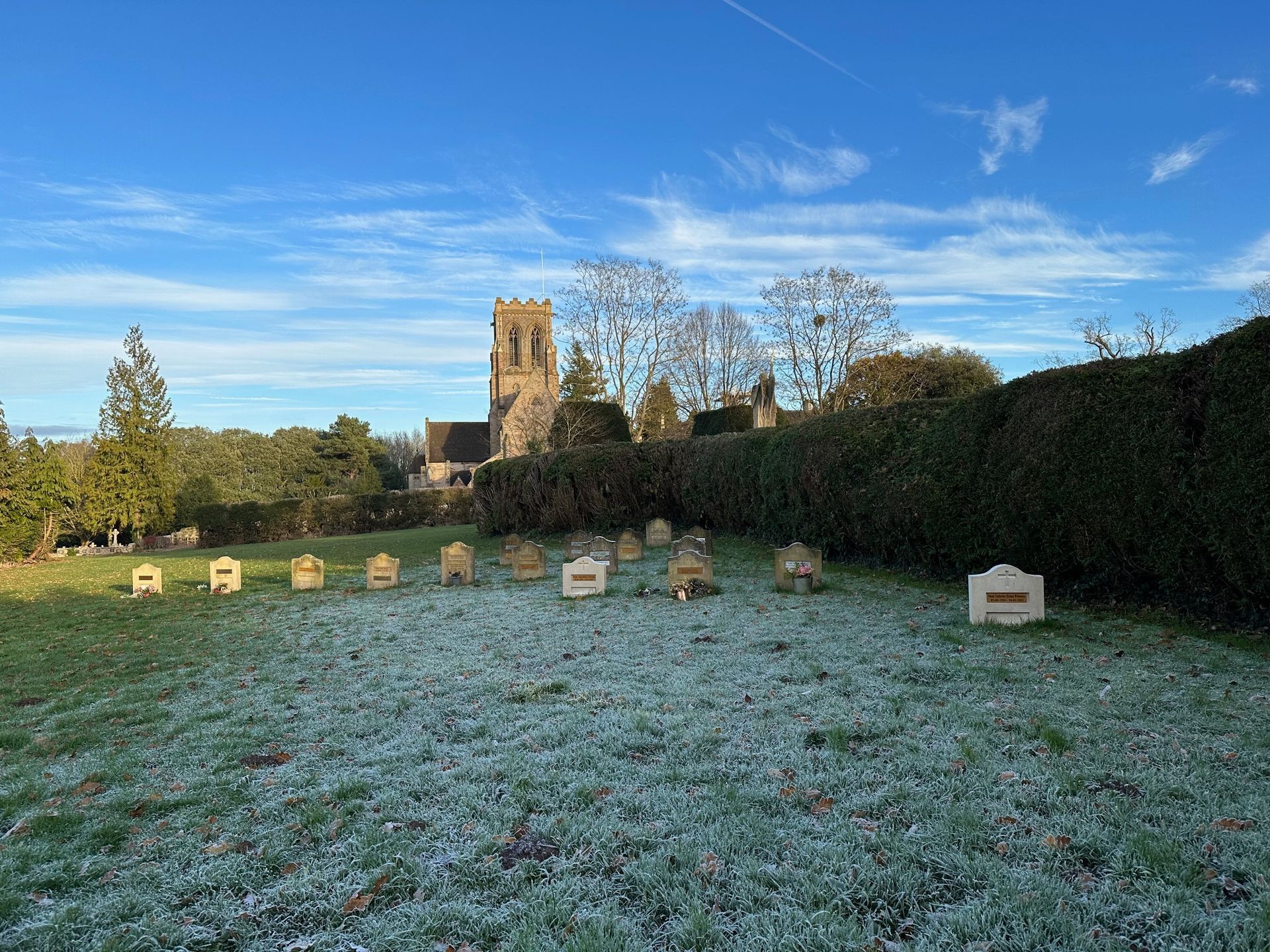Message of Abbot Paul - Monday 27th November 2023
Abbot Paul • November 26, 2023



So it is that we find ourselves in the last week of the Church’s year and on the home straight to Advent, that most wonderful of seasons. On Saturday, returning from Mass and Confessions at Leominster, I thought I’d pop into Birley church, just off the A4110. It was a glorious day, bitterly cold but sunny with a deep blue sky. The church was in use, so I just took a photograph of the exterior and will return on another occasion to take a good look inside. I thought you might like to see Toby with the friends he meets up with each morning after Conventual Mass: Holly is the chocolate Labrador and Ben the black one.
Today’s Gospel passage from Luke (Lk 21: 1-4) is that lovely story of the Widow’s Mite, as it has come to be known. Once more Jesus is in the Temple, where he cast out the moneylenders and those who had turned the place into “a robbers’ den.” Luke tells us that, “As Jesus looked up, he saw rich people putting their offerings into the treasury; then he happened to notice a poverty-stricken widow putting in two small coins.” In that short sentence there are three verbs that are roughly synonymous: to look, to see and to notice, which remind us of the all-seeing, all-watchful eye of God. What Jesus notices in the Temple is something that is part of our own life experience. The poor are often very generous and can be more generous that the rich. Fr Luke and I often remarked on this in Peru: the extraordinary generosity of the poor. The less they had, the more they gave. Jesus then comments, “I tell you truly, this poor widow has put in more than any of them; for these have all contributed money they had over, but she from the little she had has put in all she had to live on.” It’s not that the rich weren’t generous, they were, but that widow gave all she had. Why would she be so reckless as to give away all the money she had? She trusted in God to take care of her; she trusted in Divine Providence and that gave her the freedom to give away all she had. God was her all. The rich, with their wealth and all that goes with it, property, investments and the like, weren’t free to act like the poor widow. In some way, they were slaves to their riches, in which they put more trust than in God. As Jesus says elsewhere in the Gospel, “You cannot love God and money.”
What have we to learn from the story of the Widow’s Mite? To begin with, it’s a living parable: Jesus turns what he sees happening before his eyes into a parable, the extremes of wealth and poverty. It also comes just after the lesson Jesus gave his disciples on charity, on giving to those in need either in kind or with our time and company. Jesus is asking us to be generous beyond our usual measure because God himself is generous and will take care of us. We must learn to trust in Divine Providence. God will never let us down.









